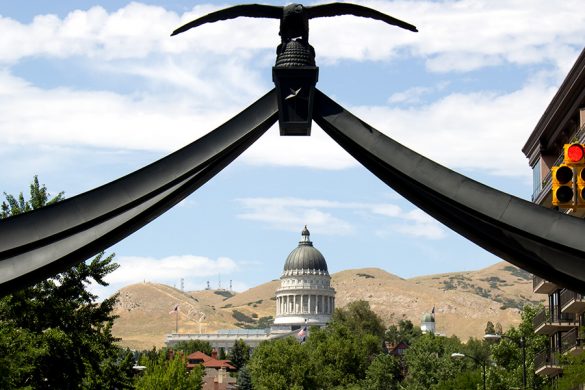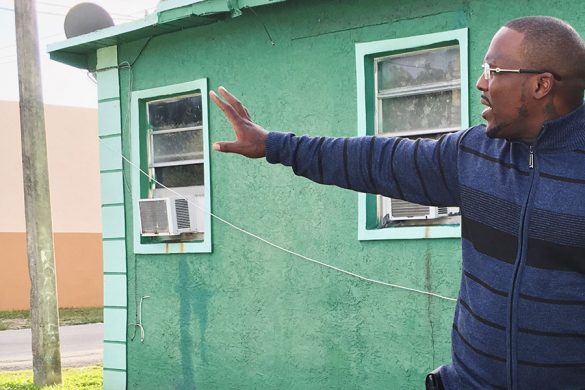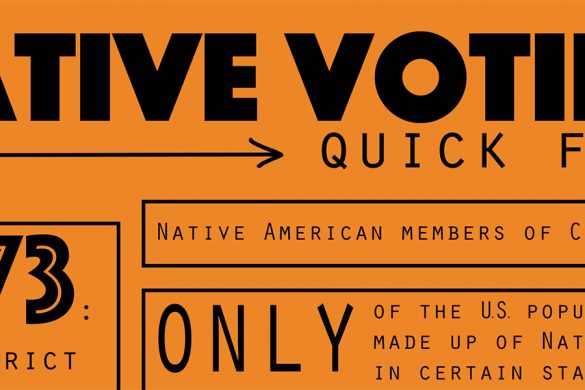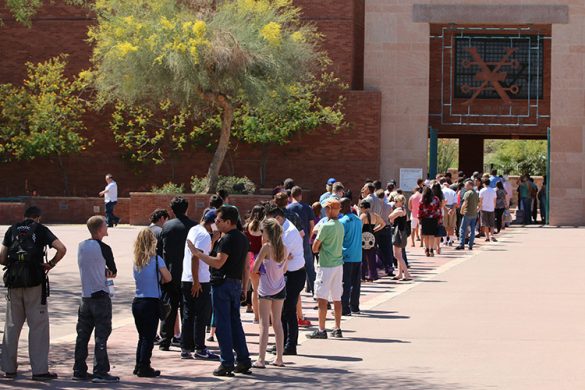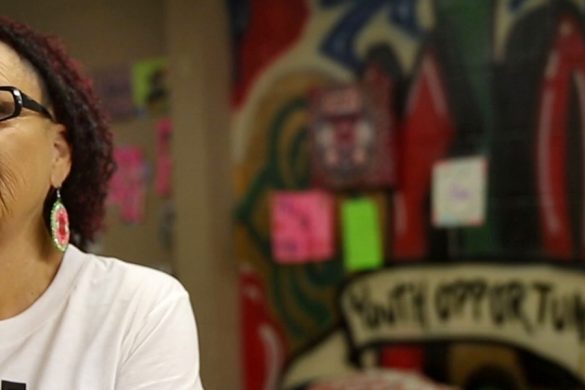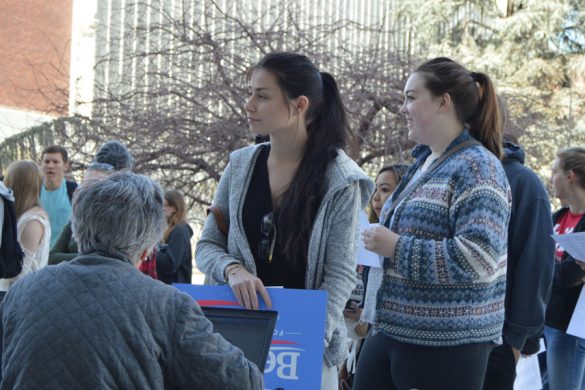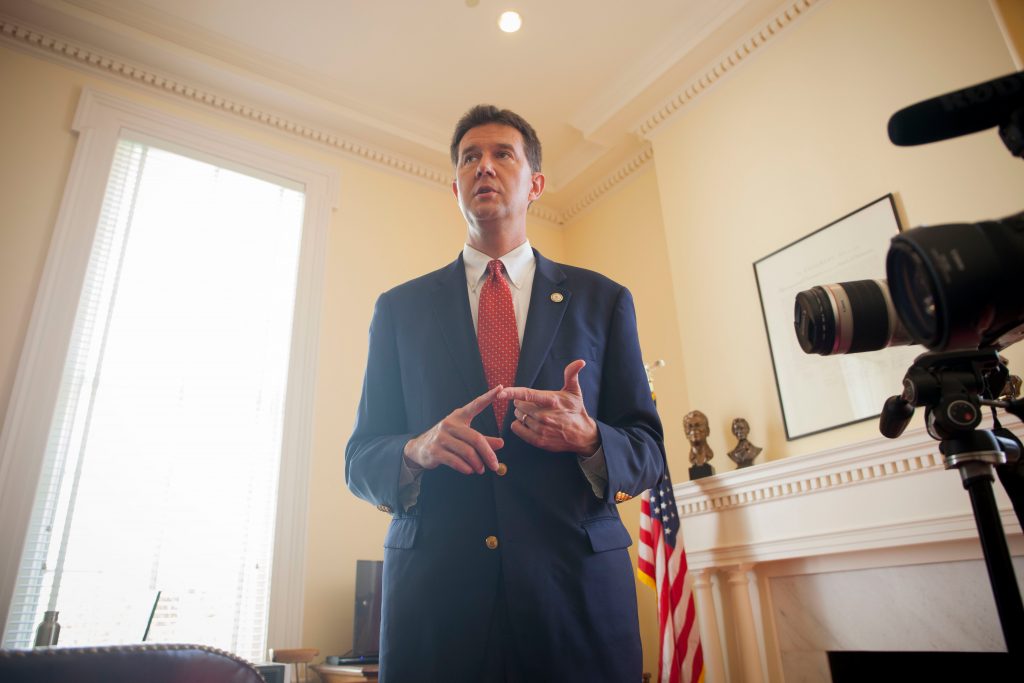
Alabama Secretary of State John Merrill said the recent changes to voter ID laws have been to maintain the “credibility of the electoral process.” (Photo by Jeffrey Pierre/News21)
SELMA, Ala. – Since Alabama’s photo voter ID law went into effect in 2014, the state has started setting up mobile ID locations to better reach people who now need the documentation to vote.
The law was passed in 2011 and took effect in 2014. Alabama Secretary of State John Merrill said the law is meant “to ensure that we had credibility and integrity in the electoral process.”
“If we have one incident of voter fraud, one incident of the integrity of the election process being violated, it’s one too many,” Merrill said. “So we’re going to do everything we can to prevent that from occurring.”
Now Alabama voters must have a specific type of photo identification at the polls to vote. But if they don’t have an approved form, they can get Alabama photo voter ID from various locations, including mobile units.
Merrill said the state coordinates with local officials on the best places in each county to set up ID locations. They travel to festivals and other gatherings, setting up computers and ID machines to provide photo voter IDs to those who qualify for one.
Critics of the photo ID law say it disproportionately affects poor and minority voters. A Brennan Center study found that 25 percent of African-Americans nationwide have no photo ID.
Not a single person showed up to the mobile locations in Dallas County on June 17 to get an ID.
“Honestly, by this time we should be registering people,” said Dallas County Registrar Carl Nelson, 76, at Ebenezer Baptist Church about an hour and a half into the drive. “And we’re not. … I don’t know why we’re not having people here today, really.”
Nelson’s fellow registrar, Bobby Willis, 80, said the county had seen a slowdown in voter registration, probably because everyone who wants to vote already has registered.
“We’ve got a lot of people doing voting drives all over the city, and when they do, they bring the forms back to us,” Willis said. “And it’s kind of slowed down.”
Both men said the county hadn’t seen any problems with the rollout of the voter ID law.
“This voter ID, it works just fine,” Willis said. “We haven’t had anybody complain about it.”
Nelson agreed. “If folks don’t get registered, it’s their own fault. … There are some naysayers who say these are hard times (to get an ID). They’re not. If they want to get registered, they can get registered.”
Dallas County had slightly lower turnout than the overall state in recent years. According to data from the secretary of state’s office, 41 percent of Alabama voters voted in the 2014 gubernatorial election, while turnout in Dallas County was 40.4 percent. The difference in 2012 was greater – state turnout was 73.2 percent, while Dallas County’s was 63.26 percent.
Still, some critics have suggested Alabama’s law was passed with racial and political motives.
“Voting is like breathing the air as far as I’m concerned. There should be no barriers,” Tuskegee Mayor Johnny Ford said. “And these Republicans are the ones who, primarily, keep coming up with these barriers.”
Willis said he has seen voting as an important responsibility his entire life.
“It’s kind of an inherited thing from the family, everyone always cared about what was going on with the government and voting. So it’s just part of life.”
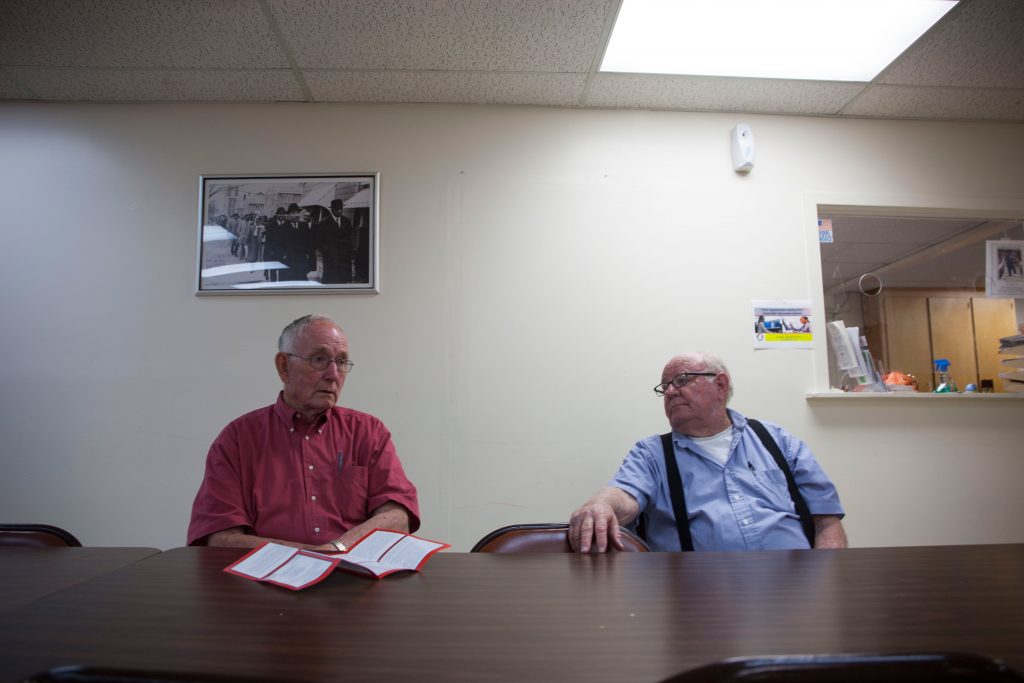
Dallas County Registrar Carl Nelson, 76, speaks to fellow registrar, Bobby Willis, 80, at Ebenezer Baptist Church during a voter registration drive in Selma. (Photo by Jeffrey Pierre/News21)
Follow Alex Amico on Twitter @AlexFAmico.
